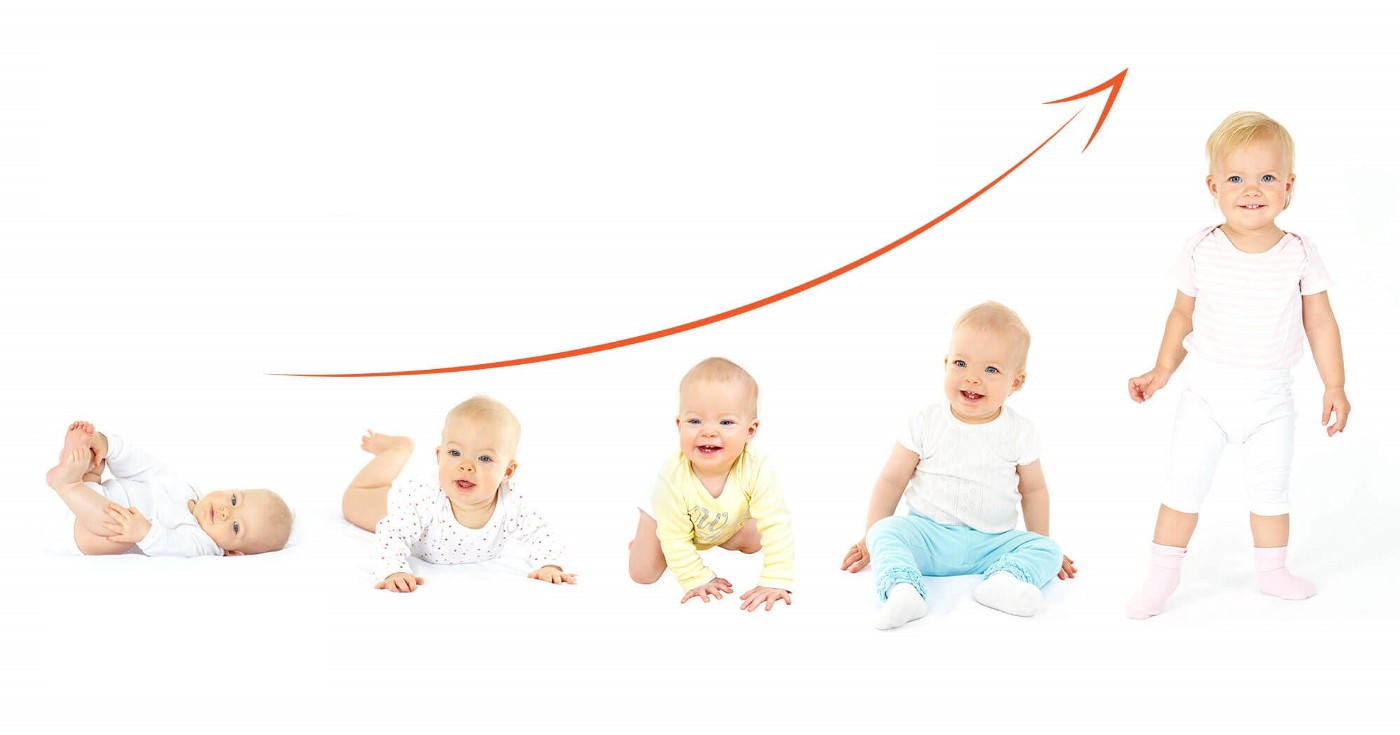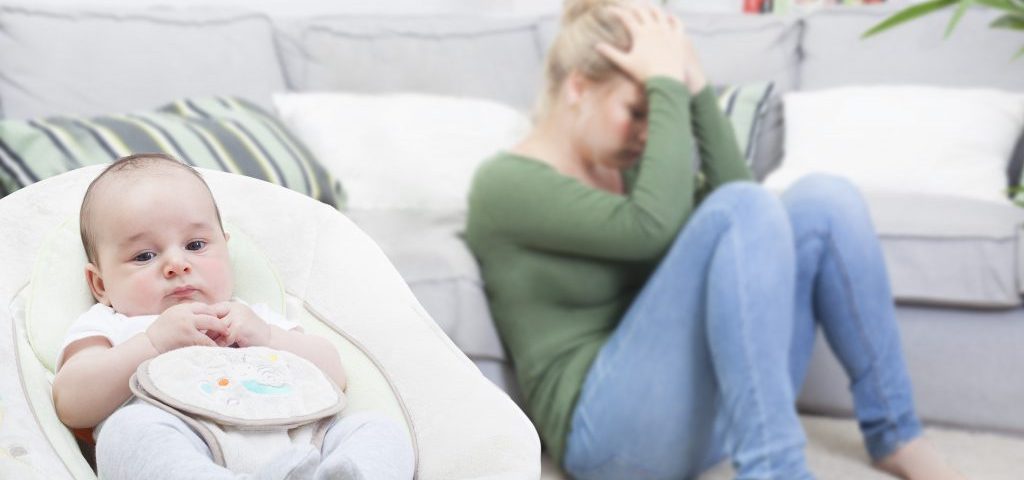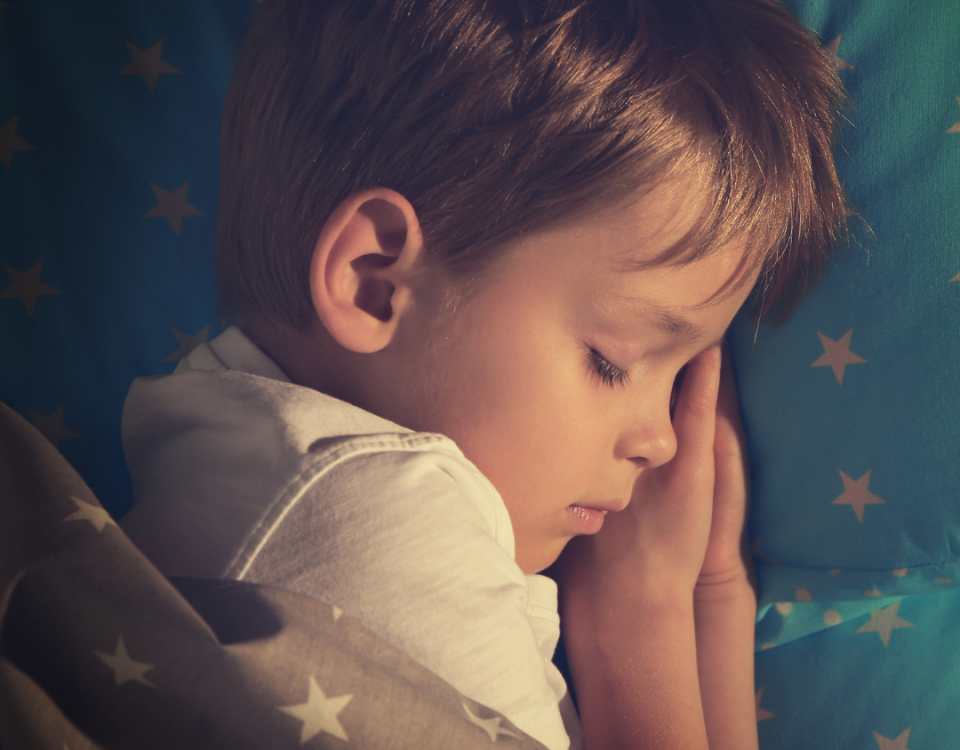
Your Guide to an Essential Summer First Aid Kit
May 5, 2019
Physical Developmental Delays: What to Look For
July 25, 2019Throughout pregnancy or anytime during the first year of your baby’s life, you may experience depression and anxiety. These feelings are medical conditions. They are not something caused by what you did or did not do, and they can be treated if you seek help.
What are depression and anxiety?
Depression is feeling sad, empty, and/or “down,” while anxiety is feeling nervous, worried, and/or scared. Both are serious medical conditions that involve the brain and may occur during pregnancy or after birth. Having a bad day or being nervous about an upcoming event does not mean you have depression or anxiety. These conditions go beyond “just feeling moody” or having the “baby blues.”
Depression and anxiety may get in the way of completing everyday activities, like caring for your baby – and yourself. These conditions last a long time and will not go away on their own. But they are treatable, which is why it’s important to get help.
Are you talking about postpartum depression?
Postpartum depression is one name you might hear for depression and anxiety that can happen during and after pregnancy. However, this may not be the best way to describe how women feel. The word “postpartum” means “after birth,” so “postpartum depression” is talking only about depression after the baby is born. For many women, this term correctly describes how they feel, with the depression beginning sometime during the first year of their baby’s life.
However, research shows that some women start to feel depression during their pregnancy.
To describe this situation, you may hear use of the term “perinatal depression.” The word “perinatal” describes the time during pregnancy or just after birth. Depression is believed to be one of the most common problems women experience during and after pregnancy, according to researchers.
Women may experience continuous anxiety around the time of pregnancy that goes beyond just being nervous about having a baby. Anxiety during and after pregnancy is just as common as depression, and the two may even occur at the same time. Therefore, you may also hear the use of terms such as, “perinatal depression and anxiety” or “perinatal mood and anxiety disorders.” No matter what you call them, depression and anxiety that happen during pregnancy or after birth are real, serious medical conditions that affect many women around the world.
What are some signs of pregnancy depression and anxiety?
Women tell us they feel:
• Extremely sad or angry without warning
• Foggy or have trouble completing tasks
• “Going through the motions” or “robotic”
• Very anxious around the baby and their other children
• Guilty and like they are failing at motherhood
• Unusually irritable or angry
They also often have:
• Limited interest in activities they used to enjoy
• Scary, upsetting thoughts that don’t go away
What are the risk factors for depression and anxiety around pregnancy?
Depression and anxiety around the time of pregnancy can happen to anyone. However, several factors make some women more likely than others to experience one or both of these conditions.
These risk factors include:
• A history of depression or anxiety at any time
• Family history of depression or anxiety
• A difficult pregnancy or birth experience
• Giving birth to twins or other multiples
• Experiencing problems in your relationship with your partner
• Experiencing financial problems
• Receiving little or no support from family or friends to help you take care of your baby
• Unplanned pregnancy
Depression and anxiety during pregnancy or after birth don’t happen because of something you do or don’t do—they are medical conditions. We don’t fully understand the causes of these conditions; however, researchers think that depression and anxiety during this time may result from a mix of physical, emotional, and environmental factors.
Can depression and anxiety around pregnancy affect my baby?
Yes—these conditions can affect your baby, but not directly. Early mother and child bonding is important for your baby’s development, and getting close with your baby is a big part of that bonding. When you have depression or anxiety during pregnancy or after birth, it can be hard to become close to your baby. You may not be able to respond to what your baby needs. Additionally, if there are older children in the house, they may be lacking your support as well.
Early treatment is important for everyone involved in a pregnancy, including you, your baby, and the rest of your family. The sooner you start, the more quickly you will start to feel better.
Are there treatments for depression or anxiety around pregnancy?
Yes, there are treatments, and they can help you feel better. Treatment can reduce your symptoms or get rid of them completely. Some women may participate in counseling, known as “talk therapy,” while others may need medication. No single treatment will work for everyone, so there are many options available.
Your provider may ask you a set of questions, called a screening, to learn more about what you are feeling. Together, you can find the treatment that is right for you. A few treatment options are listed below.
Counseling (“Talk Therapy”)
Some women find it helpful to talk about their concerns or feelings with a mental health provider. Your provider can help you find ways to manage your feelings and to make changes to help ease the depression or anxiety.
Medication
Several medications can treat these conditions effectively and are safe for pregnant women as well as breastfeeding moms and their babies. Talk with a health care provider about medications that may be right for you. You can also visit the U.S. Food and Drug Administration to learn about drugs and their possible effects on a breastfed baby.
Is there anything else I can do besides treatment?
Here are some things you can do that can help you feel better.
• Connect with other moms. Look to join a moms’ group, either in your community or online. These groups may give you the chance to learn from others who are going through or have gone through the same thing and to share your own feelings. Postpartum Support International (PSI) can help you locate groups in your area. Postpartum Progress® provides a private online community where you can connect with other moms worldwide.
• Make time for yourself. Get out of the house or take a hot bath without interruption – do something for you. Try to have your partner, family member, or babysitter watch the baby while you go visit a friend or run an errand.
• Do something you enjoy. Whether it is listening to music, reading a book, or watching a favorite movie, take a bit of time each day to do something you enjoy.
• Be realistic. You don’t have to do everything. You don’t have to have the “perfect” home. Just do what you are able to and forget the rest.
• Ask for help. Don’t be afraid to ask your family and friends for help. Whether it’s caring for the baby or doing household chores, every act can help.
• Rest when the baby rests. Sleep is important for both you and the baby. Sleep when the baby sleeps, during naps, and at night.
• Be with others. Seek out other adults who can provide comfort and company. Set aside a dedicated time to be with your loved ones.
Can I prevent depression or anxiety around pregnancy?
Currently, there is no known way to prevent these conditions. However, knowing the signs and symptoms to watch out for can help you prepare and know when to get help quickly.
Here’s what you can do:
• Find out whether you have factors that put you at greater risk for depression and anxiety during pregnancy and after birth.
• Talk with a health care provider about depression and anxiety around pregnancy and learn what to watch for.
• Learn as much as you can about pregnancy, childbirth, and parenthood so you know what to expect.
• Set realistic expectations for yourself, your family, and your loved ones.
• Seek treatment, but also participate in things that may help you feel better.
• Plan ahead. Think about who could give you support and help when your baby arrives. Talk with those people about helping you so everyone is prepared.
Remember, depression and anxiety that happen during pregnancy or after the birth of your child are not things you cause—they are real medical conditions that can get better with the proper medical care.





